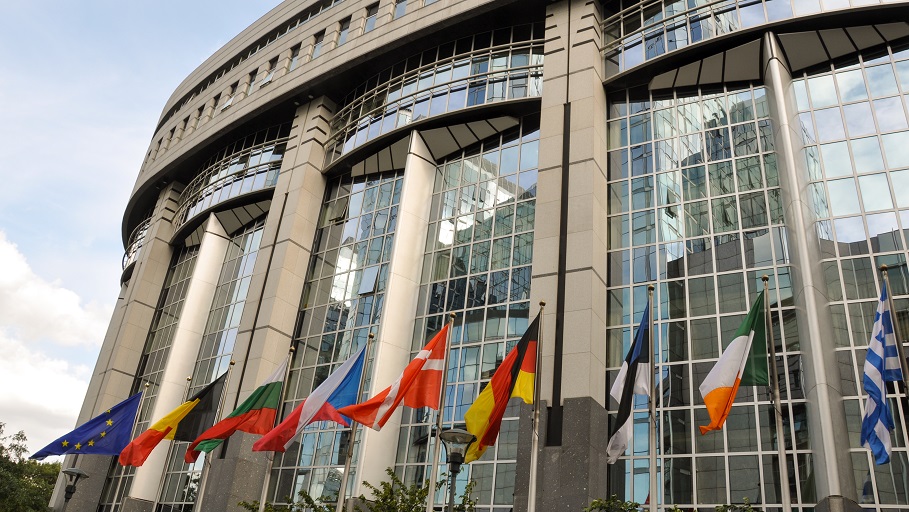Within days, the European Parliament will vote on a proposal that could weaken the continent's technology sector and empower its adversaries. Parliamentarians would be wise to reject this needless and counterproductive measure.
The proposal pertains to the undeniably complicated - but extremely important - issue of "standard-essential patents" and how they are regulated.
Most people have never heard of standard-essential patents, or SEPs. But these patents, and the inventions they protect, make modern life possible.
SEPs refer to patented technologies that are used by products and technologies that practice a standard -- such as 5G, WiFi, and Bluetooth. Hence the name, "standard-essential."
Imagine if there was no shared standard for WiFi devices. Certain phones, laptops, and other devices would only work with certain routers. It would be a massive drag on economic productivity.
Of course, these technologies are not stagnant. Companies are constantly innovating - just look at cell phone networks. Telecom firms have already rolled out 5G networks across much of Europe, barely a decade after they rolled out 4G, which came roughly a decade after 3G networks.
In most industries, when a company patents an invention, it has the choice of developing and marketing it entirely by itself, or licensing it to other firms in exchange for royalties. For instance, if Volkswagen develops a more efficient battery for electric vehicles, it might keep that technology for itself - to give its vehicles a competitive advantage. Or it might conclude that licensing the improved battery technology to rival automakers would generate more revenue.
But when it comes to standard-essential technologies, companies that contribute their technologies to a standard agree to offer a license to their patents on "fair, reasonable and non-discriminatory" terms. Of course, the innovator company can still charge a licensing fee, but any interested company can access the patented technologies and implement the standard in its products.
Right now, companies work out amongst themselves what those licensing fees should be.
This status quo is working well. The European Commission released a report last year that found no bottlenecks or barriers that "systematically discourage potential contributors from participating in standards development, or discourage potential implementers from creating products that use technology standards subject to potential SEPs."
Rather, a report that looked at this market found "healthy innovation and wide adoption" of standards.
Nevertheless, the European Commission decided to issue a plan that upends the status quo and completely changes how SEP licensing fees are determined. The proposal is lengthy and complex, but at its core, it would task bureaucrats - rather than companies within industries that use and understand the standard-essential technologies in question - with determining licensing rates.
Experts have decried this poorly designed proposal. Bernhard Grill, the German who helped invent the MP3 standard that underlies many music and video-sharing platforms, recently warned that "the regulation was drafted by people who have never participated in the standardisation process" and that there is "a total disconnect between the practical world of standardisation and what the regulation tries to do."
The proposal would also empower the biggest companies in an industry to form alliances and collectively negotiate royalty rates -- thereby allowing them to set arbitrarily low licensing fees for small, innovative firms that invent breakthrough technologies.
Enabling giants like Apple, Samsung, and Xiaomi to form these "Licensing Negotiation Groups" (LNGs) would give them even more leverage, allowing them to easily steamroll individual European firms. Their amplified bargaining power would directly hit small research firms, drive down returns on European R&D spending, and reduce the incentives for companies to invest in strategic technologies like AI and quantum computing.
The proposal would deal a further blow to European innovators, who already face a threat from China's similarly top-down approach to SEP licensing. In December 2023, a Chinese court set an arbitrarily low royalty rate for a SEP technology owned by Nokia. The move sent shockwaves through the international telecom industry, as the royalty imposed by the Chinese court was not just for Nokia's patents in China, but for all of their patents worldwide, including in the European Union. This constitutes a land grab that subjugates EU property - patent rights - to the judgment of Chinese courts.
It sets a truly frightening precedent, and instead of condemning China's unilateral overreach, the Brussels proposal effectively endorses the same approach.
Unfortunately, the proposal could soon become law. The European Parliament's Legal Affairs Committee recently voted to move forward with it, despite quiet opposition from many members. The full Parliament will vote on it this month.
Approving the proposal - which is designed to solve a problem that the European Commission's own study admitted does not exist - would harm European companies without any offsetting benefits for consumers. Parliamentarians would be wise to reject it - before the damage is irreversible.


